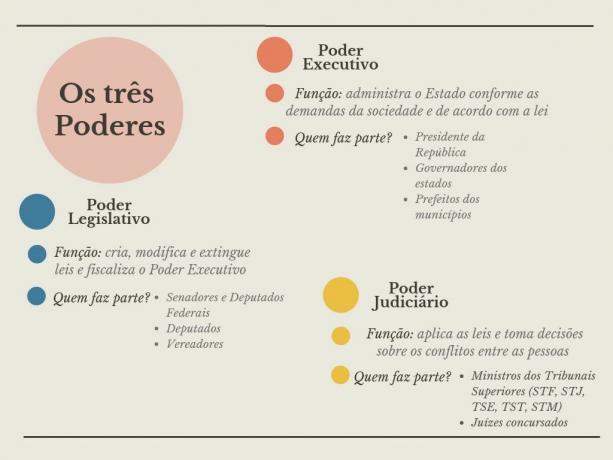Universal suffrage is the right of every citizen to participate in the country's electoral process and political decisions.
It means the right to be able to elect their representatives to political office and also the right to run for office and be elected to office.
Universal suffrage is provided for in article 14 of the Federal Constitution of 1988:
"Popular sovereignty will be exercised by universal suffrage and by direct and secret vote, with equal value for all."
Suffrage and voting are different concepts. Suffrage is the right to participate in the electoral process, both as an elector and as a candidate. Voting is the act that guarantees the exercise of suffrage, put into practice in voting on election day.
Learn more about the meaning of Vote.
Direct and indirect suffrage
In direct suffrage, each voter chooses his candidates, goes to the vote individually and all votes have the same value in counting.
In indirect suffrage, elections take place in a system that is composed of electoral colleges. It is these colleges that choose the elected representatives.
restricted suffrage
In restricted suffrage, participation is limited and has requirements or restrictions on the right to participate in the electoral process.
- Racial suffrage: imposes a restriction on participation linked to the person's race. For example: formerly Indians and blacks did not have the right to vote.
- Capacitative suffrage: limits the right to participate according to intellectual capacity or level of studies. For example: requirement of university education to be able to vote.
- Census suffrage: limits the right to participate in elections to the payment of taxes and duties or possession of goods. Example: homeless people would not have the right to vote.
See also the meaning of Census vote.
Restricted suffrage is no longer used almost everywhere in the world, as it is currently considered that all citizens should have the right to participate in elections, regardless of social, racial or economical.
women's suffrage
Women's suffrage was a political and social movement that struggled to end restricted suffrage in relation to women. The main objective was to ensure that they also had the right to vote, since in the past only men could exercise this right.
In Brazil, women were able to participate in elections from 1932 onwards, after the promulgation of the country's first Electoral Code.
Learn more about the meaning of Suffrage.

